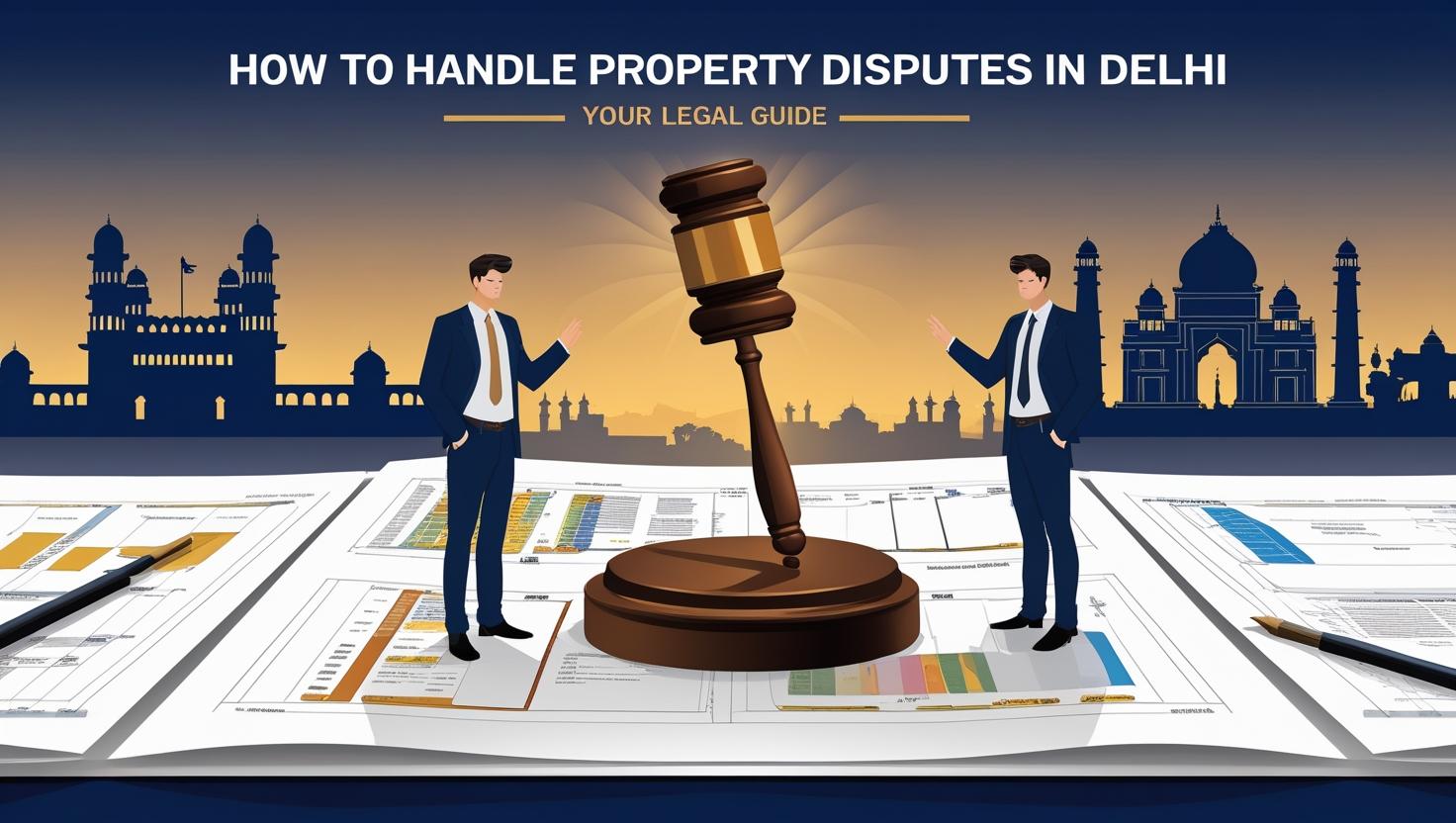Property disputes are a common occurrence in Delhi, given the city’s complex real estate landscape and high property values. These disputes can arise from various issues, including unclear ownership titles, inheritance disagreements, boundary conflicts, and fraudulent transactions. Navigating these disputes requires a clear understanding of the legal framework and proactive measures to protect your property rights. This guide provides practical steps and insights to help you effectively handle property disputes in Delhi.
Common Causes of Property Disputes in Delhi
Understanding the root causes of property disputes is crucial for prevention and resolution. Here are some prevalent issues:
- Unclear or Incomplete Documentation: Many disputes stem from ambiguous property titles or incomplete documentation. Without clear ownership records, multiple parties may claim rights to the same property.
Source : Raizada Associates - Inheritance and Succession Conflicts: Disagreements among heirs, especially in the absence of a clear will, often lead to disputes over property division.
Source : Īksha Legal – - Fraudulent Transactions: Instances where properties are sold without the owner’s consent or through forged documents are unfortunately common.
Source : Raizada Associates - Boundary Disputes: Conflicts over property boundaries between neighbors can escalate into legal battles if not addressed promptly.
Source : Raizada Associates - Landlord-Tenant Issues: Disagreements over lease terms, rent payments, or eviction notices can lead to prolonged disputes.
Source : Raizada Associates
Steps to Resolve Property Disputes in Delhi
If you find yourself involved in a property dispute, consider the following steps:
- Consult a Property Lawyer: Engage a legal expert specializing in property disputes to understand your rights and the best course of action.
Source : Raizada Associates - Gather Relevant Documents: Collect all property-related documents, including title deeds, sale agreements, wills, and tax receipts, to support your claim.
Source : Raizada Associates - Send a Legal Notice: Before initiating legal proceedings, send a formal notice to the opposing party outlining your grievances and seeking an amicable resolution.
Source : Raizada Associates - Explore Alternative Dispute Resolution (ADR): Methods like mediation and arbitration can offer faster and cost-effective resolutions compared to traditional litigation.
Source : Raizada Associates - File a Civil Suit: If ADR methods fail, you may need to file a case in the appropriate civil court. Ensure all your documentation is in order and be prepared for a potentially lengthy process.
Source : Raizada Associates
Preventive Measures to Avoid Property Disputes
Prevention is always better than cure. Here are some steps to minimize the risk of property disputes:
- Conduct Thorough Due Diligence: Before purchasing property, verify the title deed, check for encumbrances, and ensure all taxes have been paid.
Source : Īksha Legal – - Execute Clear Agreements: Whether it’s a sale deed, lease agreement, or will, ensure all terms are clearly outlined and legally documented.
Source : Īksha Legal – - Register Property Transactions: Proper registration of property transactions with the relevant authorities adds a layer of legal protection against future disputes.
Source : Īksha Legal – - Obtain No-Objection Certificates (NOCs): For properties with multiple stakeholders, secure NOCs to prevent future claims.
Source : Īksha Legal – - Stay Informed About Property Laws: Regularly update yourself on property laws and regulations in Delhi to ensure compliance and protect your interests.
Conclusion
Handling property disputes in Delhi requires a proactive and informed approach. By understanding common causes, following appropriate resolution steps, and implementing preventive measures, you can safeguard your property rights and navigate disputes effectively. Always seek professional legal advice to guide you through the complexities of property law and ensure your interests are protected.

